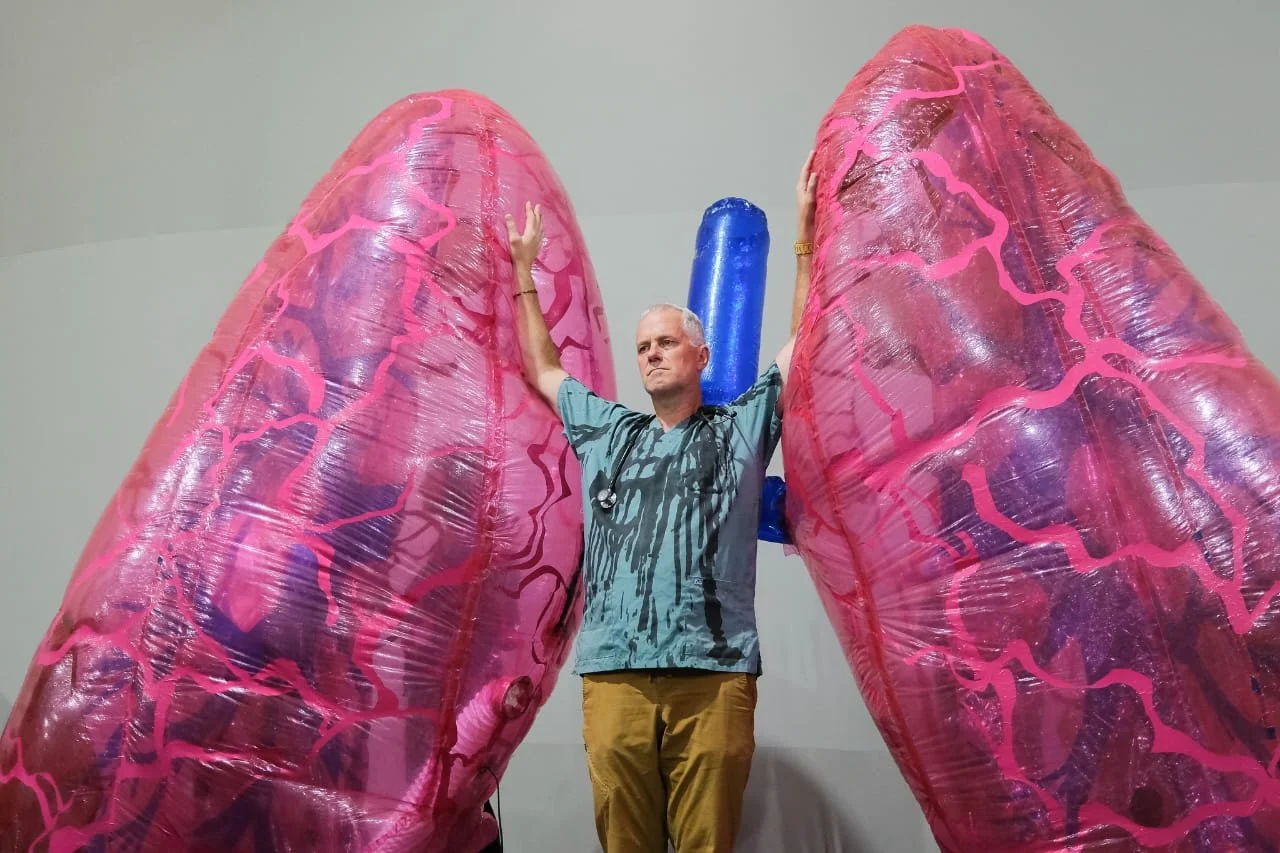Party Poopers: Invasion of COP30 by Big Agriculture Lobbyists
Inside the venue at COP30
Shocking findings by publications DeSmog and The Guardian reveal that more than 300 industrial agriculture lobbyists are participating in events at COP30 in Belém, Brazil.
Some of the lobbyists are attending the climate talks on behalf of their countries, with one in four of the big agriculture lobbyists (77) travelling on a party badge.
Big agriculture is one of the leading causes of deforestation in the Amazon ecosystem, through cattle ranching and soy production. Their presence at this COP is a case of either irony or outright insult to the climate justice process.
Among the lobbyists present at the climate talks, those from industrial cattle farming, commodity grains, and pesticides are the majority. Brazil’s three largest meat companies JBS, MBRF, and Minerva brought 13 delegates to COP30.
Pesticide multinational Bayer sponsored 19 delegates to this COP. It’s the highest number of lobbyists from any single company.
According to the investigation, Bayer and Nestlé, another member of Big Food, are “diamond” sponsors of the COP30 Agrizone, which is hosting agricultural events.
Interestingly, this is a 14 percent increase from last year’s COP29 in Baku, Azerbaijan.
The trend can mean only one thing: the growing audacity of big agriculture apologists.
The almost free pass for lobby groups at COP30 comes amid furore from Indigenous Peoples’ groups, who feel locked out of the climate summit. Last week, members of Brazil’s Indigenous Peoples staged protests at the COP30 venue, faulting the organisers of the summit for not being inclusive of them, despite the event being in their backyard.
‘‘The letter sends a very dangerous signal, not just to this COP but to other future COP presidencies as well,’’ said Ghazali Ohorella, a representative of Indigenous Peoples. ‘‘They think they can limit the civic space and the ability of people to make their voices heard at a COP.’’
This week, UN climate chief Simon Stiell has been at pains to respond to these exclusionary claims. A letter authored by him to the Government of Brazil asking for additional security at the COP venue has drawn sharp criticism from civil society organisations and human rights groups from around the world.
Did you know agriculture is responsible for a third of global emissions?
After energy and transport, agriculture is the worst emitter, responsible for 10-14 percent of the total greenhouse gas (GHG) emissions – 37 percent when you consider the entire agrifood value system, according to this analysis by FAO.
Methane makes up nearly half of all agricultural emissions. Methane is one of the most toxic greenhouse gases, mostly produced by the digestive systems of ruminants such as cattle.
The United States (20 percent), Brazil (19 percent), and China (13 percent) account for more than 50 percent of beef production in the world and, consequently, the largest proportion of methane emissions.
To meet the goals of the 2015 Paris Agreement, scientists say ‘‘radical changes’’ must be instituted in how we produce and consume food. Failure to do that puts the agreement in utter jeopardy.
Large agriculture corporations, which often have limitless resources, sponsor delegations to major climate events to represent and defend their business interests. They do so by promoting controversial solutions, including the use of fertilisers and other chemicals, while ignoring smallholder farmers and food security interests.
“COP will never deliver real climate action as long as industry lobbyists are allowed to influence governments and negotiators,’’ says Asian campaigner Lidy Nacpil. ‘‘We demand an accountability mechanism that will push polluters out of COP and protect our people’s right to food,” she adds.
Ndivile Mokoena, the project coordinator at Gender CC, describes the presence of big agriculture lobbyists at COPs as a disaster at COP. “They pretend to be keen on addressing food insecurity in the world while promoting unsustainable practices,” Ms Mokoena argues.
The advocate for smallholder rights says industrial farming is carbon-intensive and degrades the environment, ultimately reducing soil fertility and the arability of land.
“If we continue to allow representatives of agricultural multinationals at COPs, we risk having agroecology and other organic farming practices in Africa wiped out of negotiations. We must protect smallholder and Indigenous farmers.’’
In a letter last year, former UN secretary-general Ban Ki-moon, former president of Ireland Mary Robinson and the former UN climate chief Christiana Figueres, said the COP must have tighter rules to bar large corporations from influencing decisions and outcomes to prolong their life and multiply their profits at the expense of the people and the planet.
The members of the Club of Rome noted the COP was no longer ‘‘fit for purpose’’, owing to the sheer size and the unequal representation. “We need strict eligibility criteria to exclude countries who do not support the phase-out/transition away from fossil energy,’’ the group wrote.
On improving the selection process for COP presidencies, they added: ‘‘Host countries must demonstrate their high level of ambition to uphold the goals of the Paris agreement.”
To have more lobbyists than official representatives from scientific institutions, Indigenous communities and vulnerable nations, the leaders warned, reflects ‘‘a systemic imbalance in COP representation.’’

